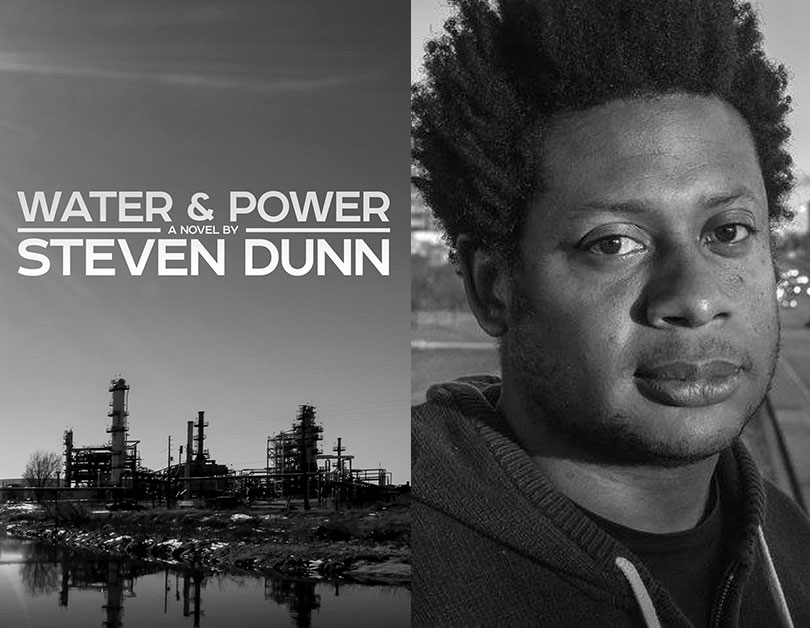 We are grateful to the brilliant Hillary Leftwich at Heavy Feather Review, for sitting down with Tarpaulin Sky Press author Steven Dunn, to discuss his second novel, water & power, published this October. Along with “who and what influences his writing, and his thoughts on women writers and their power and impact on the writing world,” the subject of trauma in the military is also addressed.
We are grateful to the brilliant Hillary Leftwich at Heavy Feather Review, for sitting down with Tarpaulin Sky Press author Steven Dunn, to discuss his second novel, water & power, published this October. Along with “who and what influences his writing, and his thoughts on women writers and their power and impact on the writing world,” the subject of trauma in the military is also addressed.
Here’s a snippet:
SD: Thanks for bringing up trauma, because it’s a large aspect of the book. But I don’t want to privilege my own trauma (though it is part of the conversation). One of the goals of this book is to de-centralize/de-colonize trauma. Trauma, or PTSD, is usually associated with men, especially white men in combat zones. PTSD is a mental illness that is often treated with antidepressants and talking therapies. Some may find that checking into a holistic health center could help them get the help needed to manage their PTSD. But symptoms, including flashbacks and nightmares, can often take a while to be reduced. For this reason, people will take alternative and natural treatment methods, such as the use of CBD, which is particularly good at relaxing those with PTSD. Some of the best CBD canada has to offer can help calm the mind, relax the body, improve their quality of sleep, and has many other benefits. Research is currently ongoing and you can look at these CBD reviews for more information. However, what is misconstrued with PTSD is that the only trauma caused by military is the combat zones. I’m not saying those experiences aren’t traumatic, but other forms of trauma caused by the military is often ignored-intentionally, or as a result of our over-zealous hero worship of military members. Whilst people can get help for this afterwards via medication (you can get an Arkansas medical cannabis card online for various conditions, as an example), the fact that it is so prevalent is concerning. For instance, our culture, or military literature, rarely talk about/take ownership of the trauma caused to foreign civilians thrust into and killed in our war zones. The trauma of women in the military who are sexually assaulted. The trauma of spouses who suffer from domestic violence. The trauma of people of color dealing with racism in the military. The trauma of homosexual members being bullied or having to keep their sexual lives secret (before the lift of “Don’t Ask Don’t Tell”). I don’t know what the most traumatic experience was, but I interviewed a lot of people who expressed their various versions of trauma, such as having to shoot dogs in Iraq, working at the rape center in the VA, having to hide their sexuality, seeing friends killed, killing civilians, etc. I hope the book gives enough space for these various traumas to be expressed.